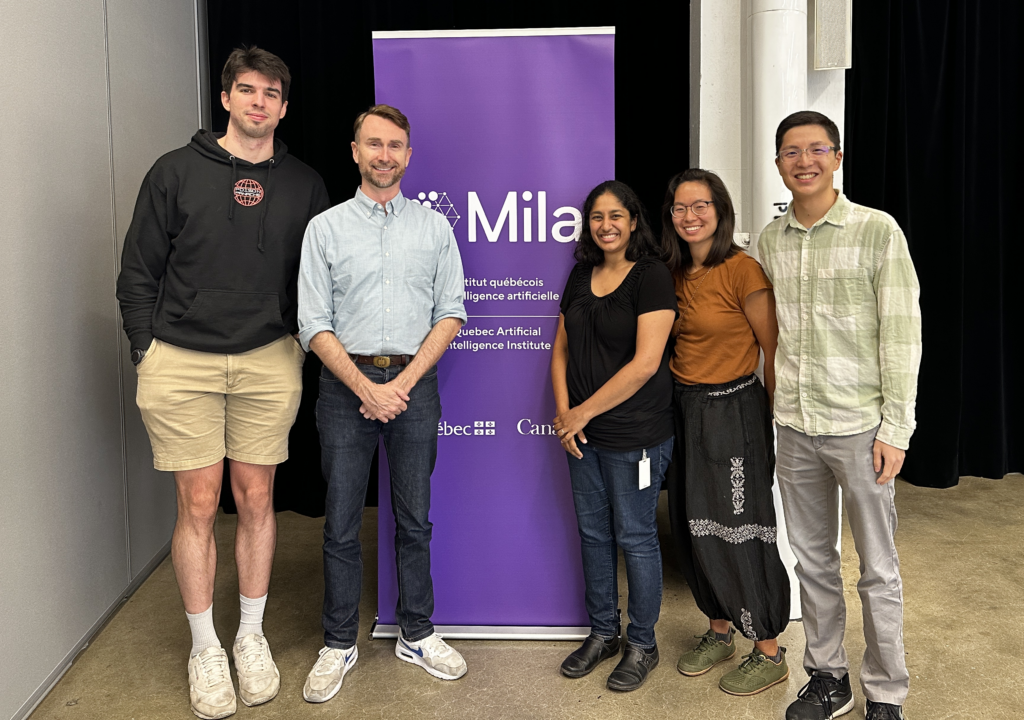Helping AI researchers win over customers and funders

One of the cruel realities of the world is that a good idea won’t go far on its own. A good idea—especially one that is novel, original, and unproven—needs a persuasive, resourceful person pushing it forward.
In other words, having the idea is insufficient. Unless you can spread it, convince the right people of its merits, and evangelize it to others, it will die on the vine.
I spent last week in Montreal at MILA—one of the top 3 AI research centers in the world—making sure that good ideas don’t die. Climate Change AI brought some of the world’s brightest minds from academia and industry together to figure out how AI can tackle climate change.


They focused on translating their research into projects that solve challenges such as better carbon footprint analytics for sporting events, new models for more efficient geomapping, and deep learning for flood risk management.
My role in this gathering was simple: help these brilliant PhDs from MIT, Stanford, and other top institutions learn how to communicate their work to the outside world.
Smart as they were—only 30 out of 2,000 applications were accepted to this program—the attendees were machine learning experts, not entrepreneurs or professional communicators.
They spend their days creating new knowledge and doing science, not winning over investors and selling to customers. For their work to spread far and wide and have a bigger impact, they need to talk about their work in a compelling way. (Otherwise, they will be outcompeted by slick-talking business people like me who do this on the regular).
What makes ideas spread
I led a crash course in pitching and selling ideas for the cohort. We covered everything from crafting a compelling vision, understanding what audiences want in a pitch, and how to sell the social and market impact of their projects.
In this work, I’ve noticed that many of the smartest people with the most years of schooling tend to be natural teachers. You ask them what they do and they can launch into a lecture about the evolution of their field.
But some of their most important audiences—organizations that could hire them and investors curious about startup potential—don’t have time for all that. They care about the benefits and what the impact looks like at scale.
So how do you convey that quickly? Here’s a taste of what we gave them.
An ocean of information in one sentence
As we push our ideas forward, they get more complex. We learn new facets of the work and understand the ever-expanding possibilities and implications. When researchers talk about their projects, sometimes they launch into dissertation-length unpackings of the journey of their research.
But most audiences don’t need the history. They don’t even need to understand the technical underpinnings. What matters is how it can help them and the people they care about. Does it have the potential to create a 10x increase efficiency of energy management? Can it reduce environmental harm by orders of magnitude? Can it create thousands of high-paying jobs in a region?
The XYZ Framework
Entrepreneurs use a tool called the XYZ framework to quickly convey their value prop, i.e., the societal value of their work. This framework guides you to compress who you serve, the benefit you bring, and the way you do it in one sentence.
It’s simple: “we help [x group of stakeholders] do [y outcome or benefit] through [z method or approach]:
Using this framework promotes brevity and facilitates the dissemination of your ideas. When someone familiar with your work meets another person who can assist you at a networking event, providing them with the XYZ of your idea enables them to accurately describe what you do to others.
Pitch and Prosper
It drives me crazy to see smart people lose out on opportunities because they are unable to communicate the potential of their work. It’s a failure of the last mile. All that effort to lose out to someone doing less impactful work who just happens to be better at self-promotion.
Thanks to this session, these researchers are ready to win over the investors, funders, and customers that can scale their projects to global impact.
Get weekly tips on entrepreneurship, video, and shooting your shot in my newsletter: https://www.camhouser.com/newsletter
